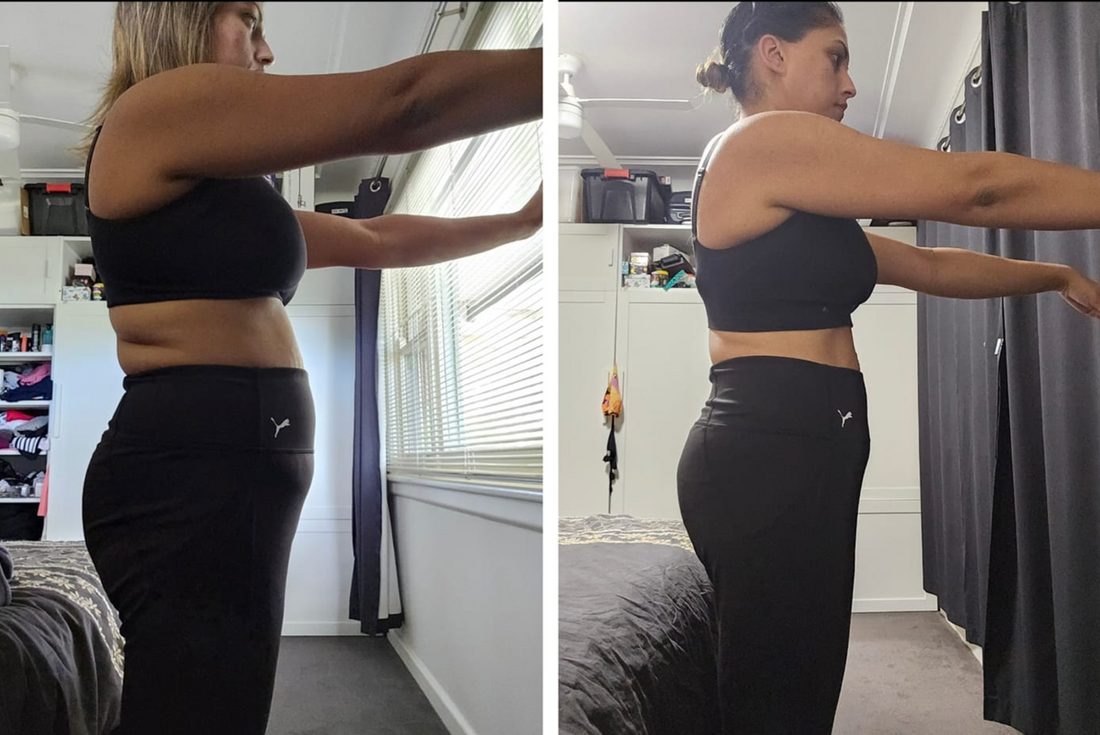
Why Body Fat Distribution Matters: A Study Links Fat Storage to Colon Cancer Risk
At Zing Wellbeing, we believe in empowering women with the latest research to make informed health choices.
A recent study published in the Journal of the National Cancer Institute highlights how body fat distribution might play a surprising role in the risk of developing colon cancer, emphasising the importance of maintaining a healthy lifestyle and body composition.

The Connection Between Body Fat and Cancer
Researchers have discovered that where your body stores fat might influence your risk of developing certain diseases, including colon cancer. The study, conducted on over 20,000 adults, found that individuals with higher levels of visceral fat — the fat stored deep around organs in the abdomen — were at a significantly higher risk of colon cancer compared to those with less visceral fat.
This fat type is particularly concerning because it surrounds vital organs, releases inflammatory substances, and impacts hormonal balance. Unlike subcutaneous fat (the fat beneath your skin), visceral fat is more metabolically active and has been linked to a higher risk of chronic diseases, such as type 2 diabetes, heart disease, and now, colon cancer.
What the Research Tells Us
The study tracked body fat distribution and health outcomes across different groups, noting that those with higher concentrations of visceral fat had a greater likelihood of developing colon cancer.
Researchers used advanced imaging techniques, such as CT scans, to measure visceral fat levels accurately, demonstrating the clear link between abdominal fat and cancer risk. The findings suggest that reducing visceral fat levels could be a key strategy in lowering cancer risk.
How to Reduce Visceral Fat
Reducing visceral fat isn’t just about aesthetics — it’s about protecting your health. Here are some steps you can take to manage and reduce visceral fat effectively:
-
Prioritise Whole, Nutrient-Dense Foods
Incorporate fibre-rich foods like vegetables, fruits, legumes, and whole grains into your diet. Fibre supports gut health, balances blood sugar, and helps reduce fat storage. -
Focus on Regular Exercise
Both aerobic activities like brisk walking and resistance training are effective at reducing visceral fat. Aim for at least 150 minutes of moderate exercise per week. -
Manage Stress Levels
High stress can increase cortisol levels, which may contribute to visceral fat accumulation. Practices like mindfulness, meditation, and yoga can help lower stress. -
Get Quality Sleep
Poor sleep patterns are linked to higher visceral fat levels. Strive for 7–9 hours of restful sleep each night to support overall health. -
Avoid Sugary and Processed Foods
These foods can spike insulin levels and encourage fat storage, particularly around the abdomen. Swap sugary snacks for whole foods like nuts, seeds, or fresh fruit.
You can also use the Zing Wellbeing program to shift belly fat

Why It Matters for Women’s Health
At Zing Wellbeing, we understand that women face unique challenges when it comes to health, particularly during life stages like perimenopause and menopause when body composition can shift.
This research underscores the importance of understanding your body and taking proactive steps to maintain a healthy weight and reduce visceral fat.
A Holistic Approach to Prevention
Maintaining a healthy weight and body fat distribution isn’t about perfection — it’s about balance and well-being. By focusing on nutrition, exercise, stress management, and regular health checkups, you can significantly reduce your risk of chronic diseases like colon cancer.
Reference
At Zing Wellbeing, we’re here to support you with programs and resources designed to help you thrive at every stage of life.
Let’s work together to prioritise your health and make choices that empower your body and mind.
How Rhian lost her belly fat
I have always tried to keep everything as real a possible too and share my own journey with our community.
So when I tried on some jeans I hadn't worn in a while I realised I had to back on track as I had gained a few kg and my cholesterol had also gone up so I followed the Zing Wellbeing program and documented by journey along the way and did regular live workouts in the groups and showed all my food and all I was doing to get back in tip top health - inside and out!
You can read my story on this here


